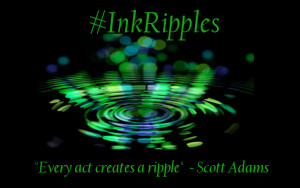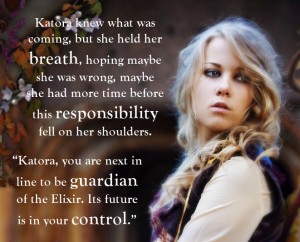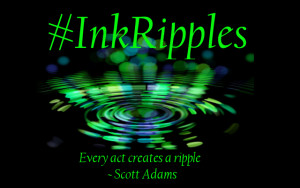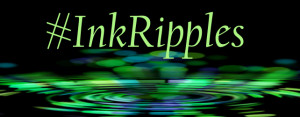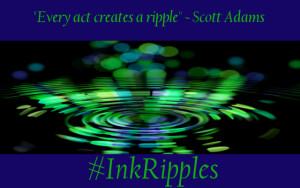Dear Congress (and those of you reading my blog),
I have grave concerns about the message you are sending to women about our ability to control our reproductive futures and our capacity for family planning. Each woman has her own reproductive journey, many with far more obstacles than I have had, but I think it’s important for all of us to share what we face when trying to make reproductive choices for ourselves and our families.
My family planning has been very successful to date. When I first started birth control, I went to Planned Parenthood for my ob-gyn services. They provide affordable, convenient healthcare for women, and it was a good option for me. In addition to birth control and preventative care (like yearly pap smears), they provide life-saving services. I had an abnormal pap-smear and had to have a cervical biopsy done (which turns out is way more common than I realized). Luckily, I was given a clean bill of health after the biopsy and only had to follow up with more frequent pap-smears for a few years.
 Oral contraceptives worked for me for many years. I had to be on a more expensive, low-hormone version because the higher-hormone ones caused me to pass out. This was before birth control was covered under the ACA. So even though I had decent insurance through my employer, I was paying around $600 out of pocket for birth control each year. Again, I was lucky because I was able to afford that for the 10 or so years I was on it.
Oral contraceptives worked for me for many years. I had to be on a more expensive, low-hormone version because the higher-hormone ones caused me to pass out. This was before birth control was covered under the ACA. So even though I had decent insurance through my employer, I was paying around $600 out of pocket for birth control each year. Again, I was lucky because I was able to afford that for the 10 or so years I was on it.
Then when I decided to start trying to have children, I went off the pill and used condoms for several months in order to give my system time to regulate itself. After that I got pregnant with my first child pretty quickly. I nursed my oldest child for 20 months, so I opted not to have any hormone-related birth control and relied on condoms. When it was time to try for child number two, once again, I got pregnant pretty much immediately after not using any form of birth control. Similar circumstances of nursing, condoms, and conception occurred for baby number three, who is due to arrive this summer.
That is a very brief account of 15+ years of active family planning. I could tell you about the time I was on vacation and forgot condoms, and the only ones I could find to purchase were less-than-ideal. Or about the first pregnancy test I took when the line was so faint, I wasn’t sure if it was positive or not and ended rereading the instructions and searching the Internet in order to determine that it was, in fact, a positive result. Or about how my first child was born 17 days early during a hurricane and how my second was born within a few hours of my water breaking and I barely made it to the hospital in time.
I also haven’t mentioned my marital status thus far. I don’t believe it’s Congress’s business what my marital status is. I will tell you that my partner has been an active part of our family planning and has supported my decisions, and that has been very important to me. Nor have I mentioned my education, which should also be irrelevant when talking about adequate healthcare.
While the actual reproduction part of having or not having children has been relatively easy, the childcare part is where things got a little trickier. I worked full-time for a year after my first child was born. I was lucky (again, notice how much I’m using that word) to have a flexible schedule where I could work from home several days a week and I had family to help out with childcare. Then there came a time when that arrangement was not working anymore. The responsibilities of working full-time, doing freelance work, and caring for my child became too hard.
When I looked into daycare, it would have taken somewhere in the range of 70-90% of my income to pay for it, depending on where and how often I sent my child. Though I had never anticipated leaving my full-time job to be full-time caregiver, that was the best option for my family.Living solely on my partner’s income has proven to be challenging both financially (though we’re certainly not destitute) and emotionally. I do not like having to depend on someone else for financial stability, and that feeling has nothing to do with my trust or confidence in my partner. It has to do with being a grown women and not being financially independent. I’ve had a job since I was 9 years old (my first job was delivering newspapers), and while I still do freelance work and write, the tiny amount of money I take in is almost negligible.
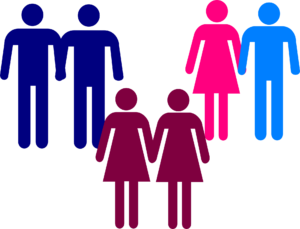 Back before the 2016 election (when we decided to try for baby number three), I was hopeful for better and more affordable healthcare coverage for me and my family. I was hopeful for a chance–or at least a discussion–at universal preschool. I was hopeful about sending my children to college in the future with none of us having to go into huge amounts of debt. I was hopeful for the country.
Back before the 2016 election (when we decided to try for baby number three), I was hopeful for better and more affordable healthcare coverage for me and my family. I was hopeful for a chance–or at least a discussion–at universal preschool. I was hopeful about sending my children to college in the future with none of us having to go into huge amounts of debt. I was hopeful for the country.
Throughout my working life, the cost of healthcare–first under my own policy when I worked full-time and now under my partner’s–has continued to rise. The ACA has certainly not been a perfect solution, but we were at least guaranteed no out-of-pocket costs for preventative care (and there are a lot of well-visits the first few years of a child’s life), maternity coverage, birth control (it sure would have saved me a lot of money had this been the case when I was on birth control), and coverage for pre-existing conditions (as pregnancy is considered a pre-existing condition). And there was the hope that the country would continue to move in a direction of more affordable healthcare for all.
Now there’s a new Republican healthcare bill on the table, one that doesn’t guarantee all of what I mentioned above. It’s a step in the opposite direction. It cuts services and raises premiums for those who are the most needy (of which I am not). Some Republicans have made it clear, they don’t think men should have to contribute to prenatal care. Some also think that maternity coverage should not be a given under healthcare. What happens to the women and their unborn children who will no longer be able to afford proper prenatal and delivery services? What about babies that end up in neonatal care? How are families going to pay for that?
All this from a political party that stands on a pro-life platform. A party that has continued to chip away at funding for Planned Parenthood, even though it’s well-established that ZERO federal funding goes toward abortions. And what happens when access to women’s healthcare services provided by places like Planned Parenthood is eliminated? Women die. In Texas, where resources for women’s healthcare have been under attack for years, the maternal death rate has skyrocketed.
The message I am getting from the Republican Congress is that they are pro-birth, but they are against giving women options for family planning and they are leaving families out to dry when it comes to actually having to raise those children. Some of them probably even use religion to justify the belief that it’s not a woman’s right to abstain from having sex with her husband, yet they have no desire to offer birth control options or even care for a pregnant woman and her unborn child. Pro-life is a misnomer.
My partner’s insurance is up for renewal in June, a month before our third child is due to be born. What happens to us if our new insurance doesn’t cover maternity care? Delivering a baby in a hospital is expensive without health insurance (and sometimes not so cheap depending on what kind of insurance you have), expensive enough to put this middle-class family in debt if we have to pay out-of-pocket for it all. I’ve never felt so anxious about the expense of birthing a child, and I didn’t expect this when we planned for this baby.
The message I’m getting from the Republican Congress is that they don’t care about my ability to family plan or to raise my family. They want to make the insurance companies more profitable. They want to control what I do with my body under their terms, but they don’t want to give me the tools to do that in a healthy, affordable way. They want to provide tax assistance for the wealthy to get healthcare, but they don’t care if poor people can afford to be healthy. (And I’m not even getting into other anti-family policies here, like barring same-sex couples from adopting.)
Is that the message they want to send? If it’s not, I hope they get their act together and start sending a better one with their words, actions, and proposed laws. If it is the message they want to send, then I hope we all (women and men both) vote them out of office in the next elections. Because I believe in a country where the health and well-being of women and children are some of the most important values we can support. I think our lawmakers should believe that and make laws accordingly.
